So you’ve researched the health benefits of collagen (including Things to Know Before Taking Collagen) and are super jazzed about adding it to your daily routine. But now you’re faced with one last choice: marine collagen vs grass fed collagen?
Collagen is the new superstar supplement for the health crowd. And once you dive into the research, it’s not hard to see why.
Collagen is a long chain of linked amino acids that occurs naturally in our bodies. It provides our cells, muscles, tendons, blood vessels, connective tissues and digestive system with the structure (or framework) they need to perform at their best.
So why take collagen supplements?
Most people are surprised to learn that, after water, collagen is the second most plentiful substance in our bodies. Sadly, from our early twenties onwards, the body’s own natural production process of collagen declines (falling by 1.5% per year). This means by the time we’re 40 we are actually producing 25% less collagen.
This decline in collagen production can contribute to many of the symptoms we associate with aging, including achy joints, fine lines, thinning hair, digestion issues, and more.
Happily, science shows that supplementing with collagen powder can help. Collagen, and some of the non-essential amino acids it provides, can contribute to improving skin elasticity, reducing inflammation, improving the quality of sleep, regenerating cartilage, and so much more.
But once you’re ready to hit the GO button and choose your collagen, you will need to decide what source of collagen to opt for. You’ll find collagen from different animal sources on the market: bovine (cow), marine (fish), porcine (pig) and chicken cartilage.
At Sproos we are only comfortable using grass-fed bovine and wild-caught marine sources. Why? Because we truly believe that your health is deeply connected to the health of our planet. These two sources are the most natural AND sustainable.
So let’s dive in.
Marine collagen vs. grass-fed collagen: what’s the difference?
Marine Collagen
As the name suggests, marine collagen is sourced from fish. It comes from the parts of the fish that would usually be discarded during processing: scales and skin.Best For Skin
Marine collagen is a source of type 1 collagen. Type 1 is the most plentiful collagen in our bodies. It's also a key building block for maintaining the elasticity and firmness of our biggest organ: the skin.
Marine collagen has long been used in the cosmetic industry for its skin enhancing benefits. Its ability to provide plumpness and restore a youthful glow make it a slam dunk for beauty gurus.
Superior Bioavailability
The real magic happens when we take collagen internally, as opposed to externally. Creams can only go so far. Collagen benefits for skin include elasticity, firmness and increased hydration.
High quality collagen powders are hydrolyzed, meaning they are broken up into smaller peptides that are easier for our bodies to use. Because it consists of these smaller peptides, marine collagen has superior bioavailability than other types of collagen. Bioavailability refers to the body’s ability to actually use the collagen once you take it.
Can Have a Fishy Taste
Some sensitive folk claim that they simply cannot abide the ‘fishy’ taste of marine collagen. So if marine collagen is your jam, make sure that you find one that is virtually tasteless (like Sproos’ marine collagen powder).Make Sure To Read the Labels
If you opt for marine collagen, make sure the brand you choose lists the actual source of the collagen. ‘Marine collagen’ has become a bit of a blanket term to describe collagen from any ocean source, which includes jellyfish, shellfish and even sharks.
The problem with these sources is that they contain larger peptides that aren’t as easily absorbed.
Another issue is that much of the fish collagen on the market comes from farmed tilapia fish from South East Asia. The scales of this fish are large and tough and so need very strong acids, such as hydrochloric acid to break them down. There are also environmental concerns surrounding this type of intensive fish farming.
Enter Sproos: If you are concerned about the ethics of fish farming and want complete transparency on sourcing, consider Sproos. Sproos marine collagen is sourced from the skin and scales of wild-caught North Atlantic fish (pollock, haddock and cod). This ensures a natural, sustainable source of this powerful food.
All of Sproos’ collagen is also manufactured in Canada under stringent Health Canada regulations. Every single batch is tested for heavy metals and toxins to ensure it meets the highest global standards.
And we’ve been told that it’s one of the most tasteless marine collagen options out there. How do we do it? The fish skin we use goes through an intensive ‘washing’ (using only purified fresh water, of course) before processing.
Grass-Fed Collagen
Grass-fed collagen comes from cattle. Sometimes called bovine collagen, it’s extracted from the hides of the animals, and undergoes a very similar manufacturing process to marine collagen.Great For All Around Health
Grass-fed collagen is made up of types 1 and 3 collagen. These are the two most plentiful types of collagen present in our bodies and can be found throughout our connective tissues. This makes grass-fed collagen great for all-round body health and recovery from injuries.Humane Source
The key phrase here is ‘grass-fed.’ You always need to consider the source when choosing collagen. Grass-fed refers to how the animals were raised, as opposed to feed lot (or grain fed) animals.
With grass-fed cows, life is happier, healthier and more natural. Basically, Bessy wasn’t made to eat a diet of grains alone. The consensus is that grass-fed and pasture raised is a more humane and natural way to treat cows.
Enter Sproos: If you are concerned about the ethics of bovine collagen, but still want the well-rounded benefits of types 1 and 3 collagen, consider Sproos’ grass-fed collagen. It contains hydrolyzed bovine collagen peptides sourced from the hides of grass-fed, pasture-raised USA cattle.
Which one is right for you?
To your body, collagen is collagen is collagen. What matters most is that you take it on the daily. So when it comes to types of collagen like marine collagen or bovine collagen, it boils down to two things: personal choice and your main motivation for taking collagen.
If you don’t eat meat or have a sensitivity to fish, the choice is easy.
But beyond that, if your priority is to improve the health of your skin, hair and nails, then you should opt for marine collagen, hands down. If your goal is to support your overall body health and recovery, then grass-fed collagen is a great option.
Bottom Line
Maybe you’re looking for a healthy glow in your skin. Or maybe you want to send some healing magic to your joints or gut. Maybe you’re just curious as to what all the fuss is about. Whatever your reason for deciding to take collagen supplements, it can be confusing decide which type of collagen is right for you.
The good news is that once you’ve ready to start, it doesn’t need to be complicated. We’ve got plenty of resources to help you get started, like Things to Know Before Taking Collagen, Collagen Benefits for Men and our guide on How to Take Collagen. So read up, know your options and choose your collagen!
Sproos’ collagen powders are sustainably sourced, tasteless, and manufactured to the highest global standards. Shop now.


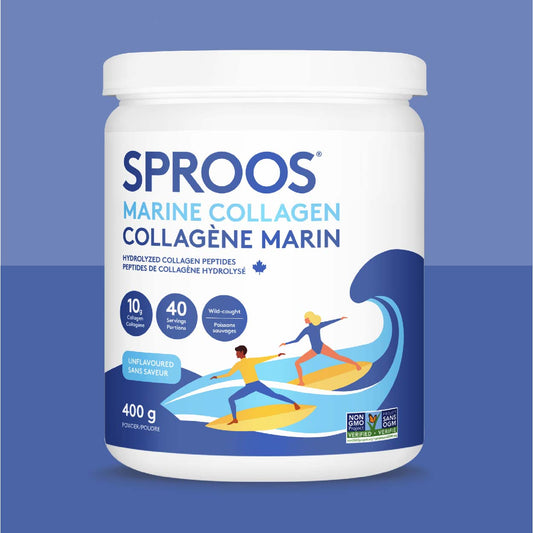
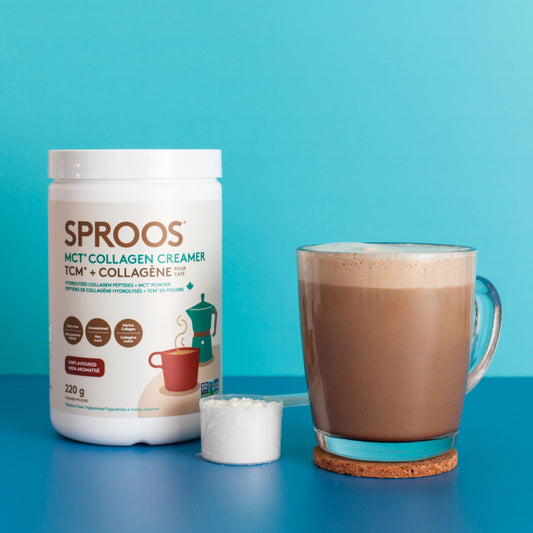
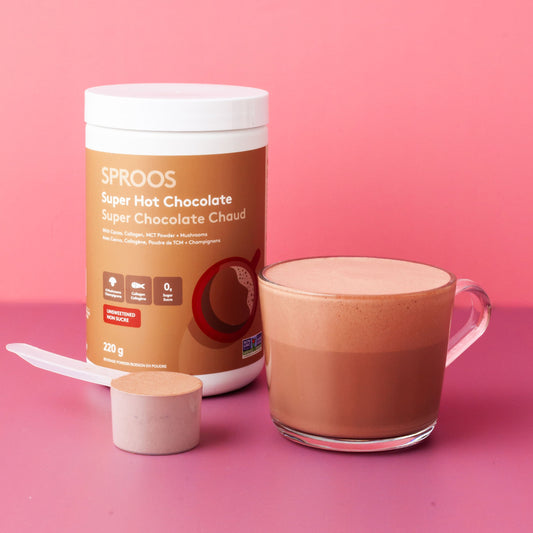




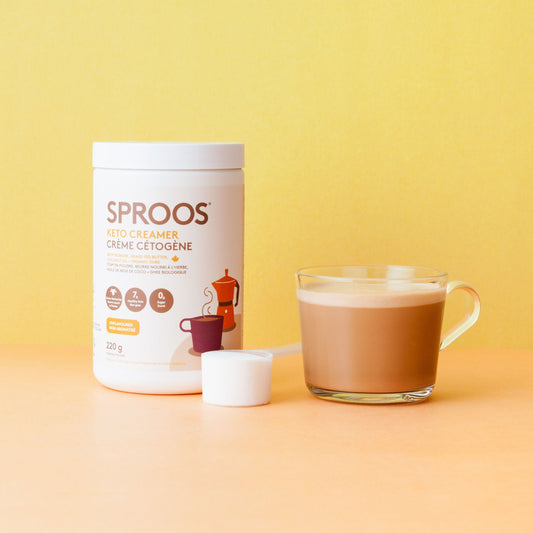
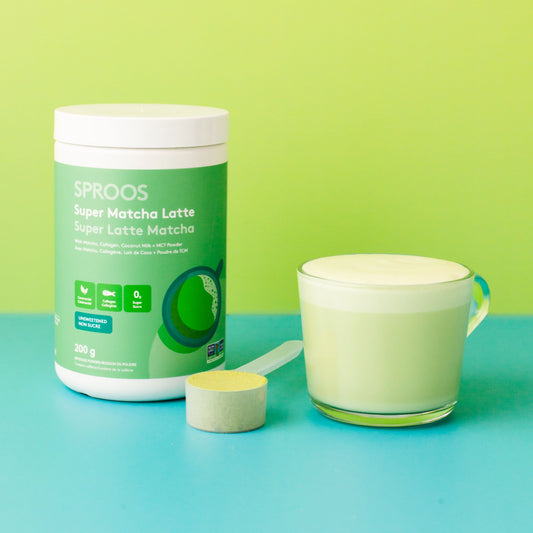


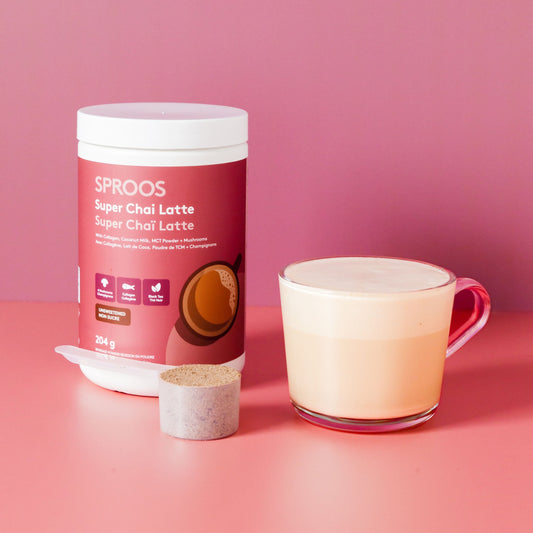
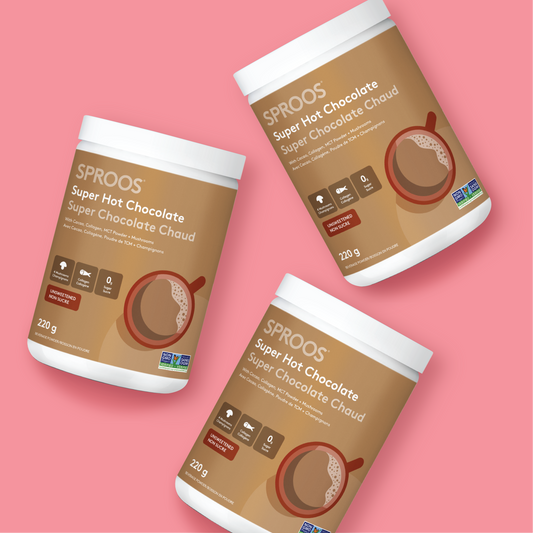
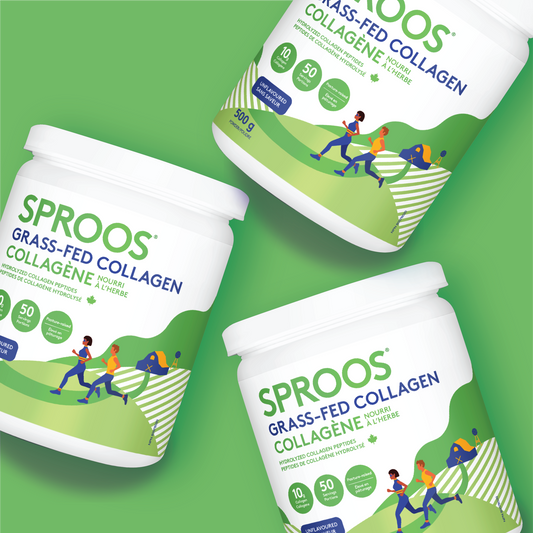
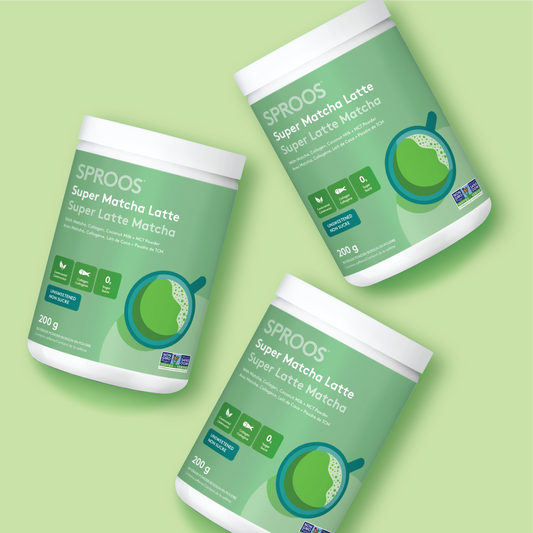
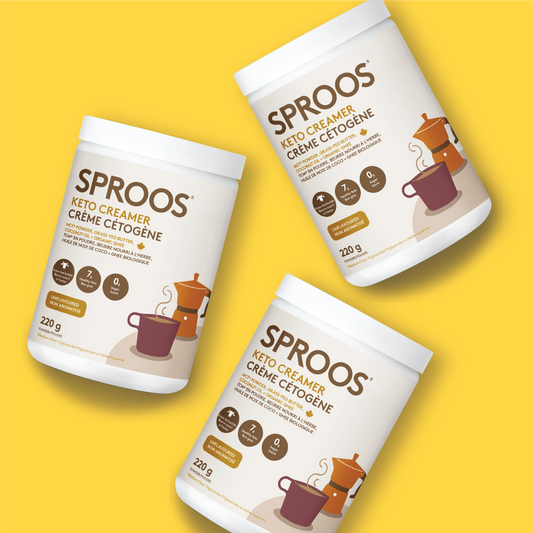
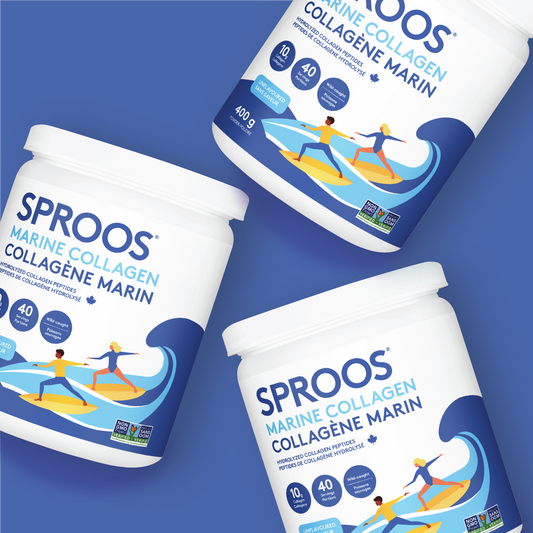
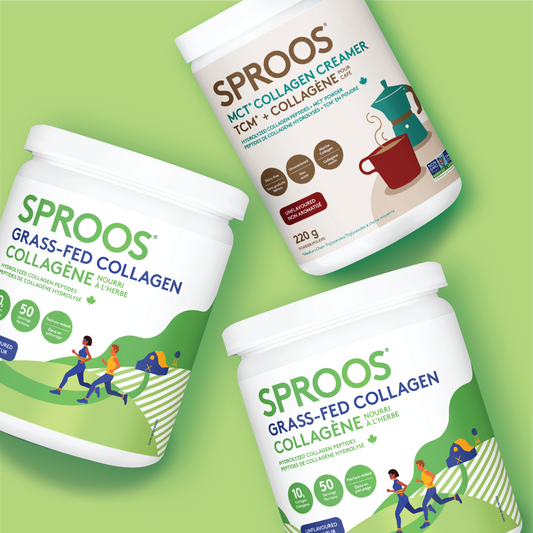
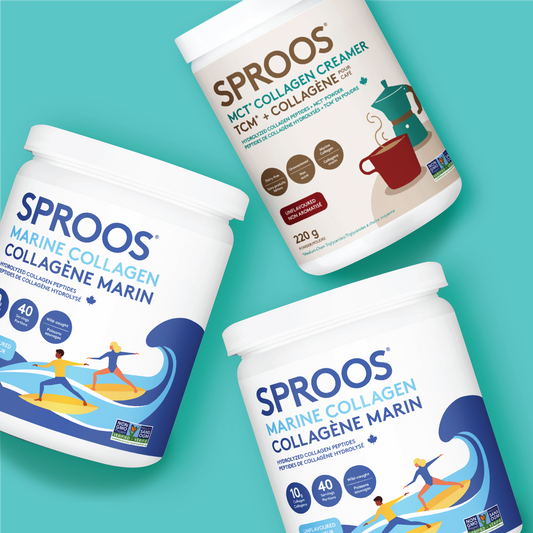
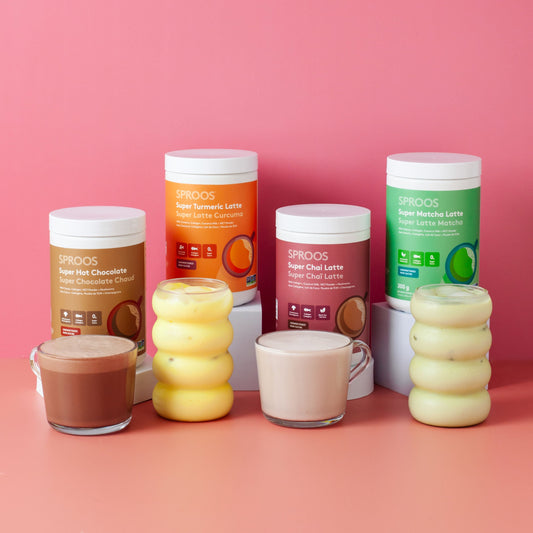
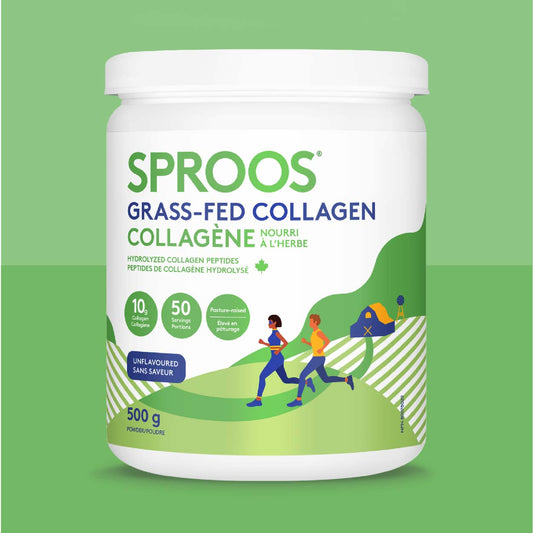
3 comments
Is it possible to take the two types of collagen in order to take the most benefits?
I don’t know which is better for me to use. I was on the native path grass fed collagen about 2 months. It helped with my skin and pre aging, but seemed to irritate my gut. So I don’t know if I should try your grass fed or do the marine collagen
Thank you for sharing valuable information. I got so much important informative knowledge from your blog.